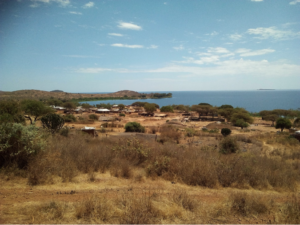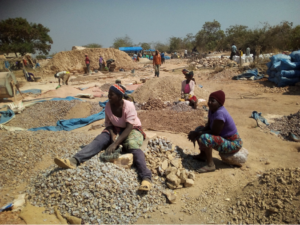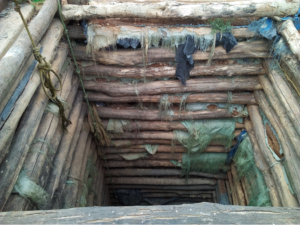
With the support of the Belgian Development Cooperation, IPIS has launched a mapping project of the socio-economic and human rights impact of small and large-scale mining in Northwest Tanzania. IPIS aims at collecting reliable and accessible data to contribute to improving the governance of the extractive sector in Tanzania. In developing the methodology and design of the data collection, IPIS undertook a number of scoping missions over the summer to the project’s four target regions: Geita, Shinyanga, Mara and Kigoma. Through a situational assessment and stakeholder mapping we aimed to obtain a better understanding of the mining context, allowing to fine-tune the data collection to local circumstances, needs and challenges.
In each region,IPIS visited a number of mining areas and interviewed various stakeholders, including authorities, mining cooperatives and associations, civil society organisations, community members and mine workers. While small and large-scale gold exploitation dominates economic activities in this Lake Victoria Zone, the underground wealth of this area also includes diamonds, copper, iron, nickel, tin, salt and limestone. Their exploitation offers key livelihoods and business opportunities for the inhabitants of these regions, but also poses key challenges.

Among the main challenges identified during these scoping missions are land disputes, lack of equipment causing early abandonment of productive mines, wide-scale use of toxic mercury by small-scale gold miners, deforestation, water, soil and noise pollution, lack of dialogue and tensions between large-scale miners and local communities, poor and insecure working conditions, child labor, and discrimination of women in this male-dominated industry.

We also discerned severe human right violations such as excessive use of force and sexual violence by public and private security services protecting mining companies, with very limited and substandard avenues for accountability and redress.
IPIS will use this context assessment as a basis to develop mobile data collection questionnaires in order to obtain more detailed and structured information on the various positive and negative impacts of mining in these four regions. IPIS is currently conducting a training in Tanzania for surveyors to prepare them for the challenging data collection phase, which will be spread over a number of mission between November 2017 and February 2018.

